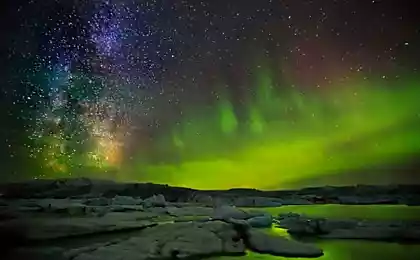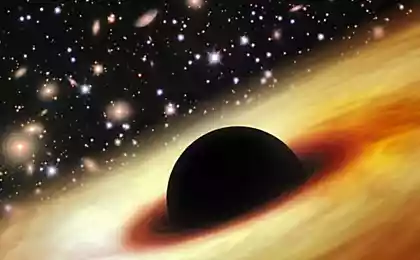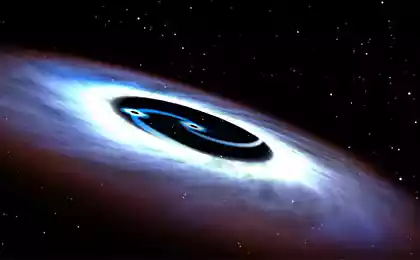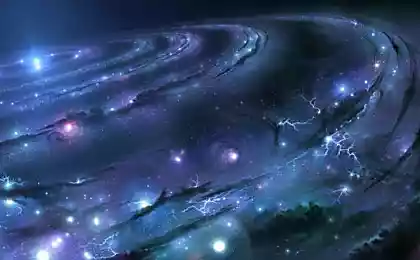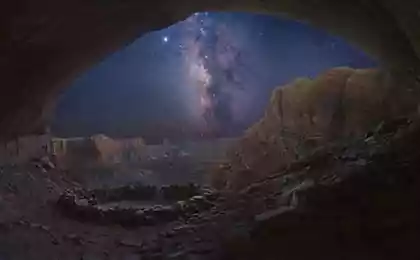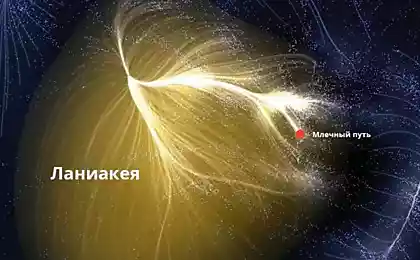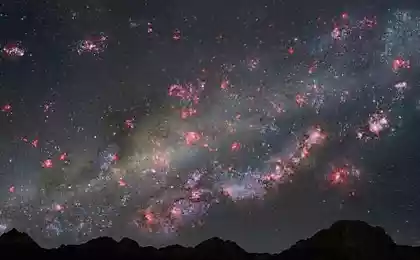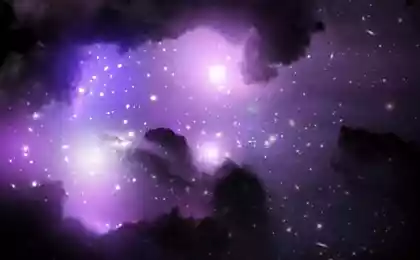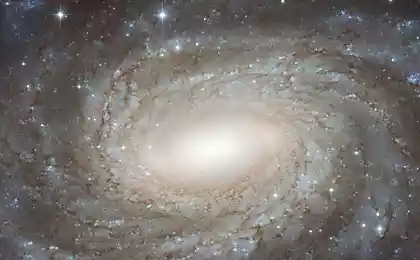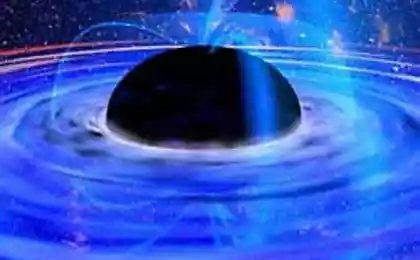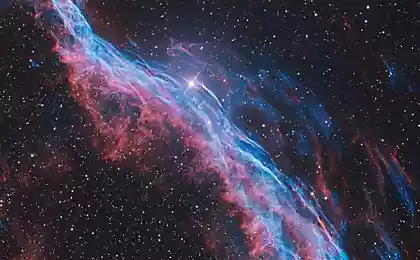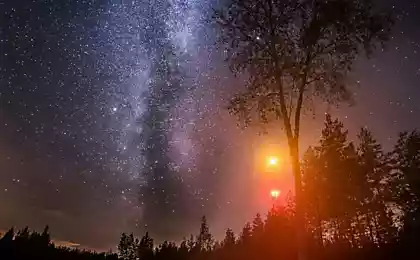548
Could the milky Way become a quasar
Ninety million six hundred sixty two thousand seven hundred fifty three
At the center of our milky Way galaxy is located a supermassive black hole. Could this black hole become a quasar? First, let's first refresh our memory, what is a quasar. Quasar — this is what happens when a supermassive black hole actively absorbs material in the nucleus of the galaxy. The area around a black hole becomes extremely hot and emits bright radiation that we can see for billions of light years.
Our milky Way is a galaxy, like all galaxies, has a supermassive black hole in the center. Could this black hole to overeat and become a quasar? Quasars, it should be noted, a very rare event in the life of galaxies and are, as a rule, in the early stages of the evolution of the galaxy, when she is young and filled with gas.
Typically, the material in the galactic disk rotates away from a supermassive black hole, and he is desperately short of material. Sometimes a stray gas cloud or star is too close, his or her breaks apart and we see a brief flash in the process of feeding the black hole. But you won't get the quasar, when a black hole eat a star. You need an incredibly large amount of material to be fed to dump a lot of gas, dust, planets and stars. Disk accretion is growing, swirling vortex of the material becomes greater in our Solar system, its temperature is comparable with the star. This disc generates a bright quasar, but not a black hole.
Quasars can appear once in a life galaxy. And if this happens, the quasar lives only a few million years, while the black hole absorbs the entire available material, like the drain hole of your sink. After the black hole absorbs everything, the accretion disk disappears, and the light of the quasar turns off, the waiters take the empty dishes.
Twenty nine million four hundred eighty nine thousand four hundred eighty
Sounds scary, actually. According to a scientist at new York University, Gabe Perez-Giza, though quasar can emit 100 trillion times more energy than the Sun, we are far enough away from the center of the milky Way and get very little light — perhaps one hundredth of a percent of the intensity of our sun.
Since the milky Way — the galaxy in middle age, it kasarova days seem to have passed. However, coming forward is a powerful event that can generate such an outbreak. In 4 billion years Andromeda will collide with the Milky Way, pokolban nuclei of both galaxies. During this enormous event, supermassive black holes in two galaxies will interact, confuse the orbits of stars, planets, gas and dust.
Something will be thrown into space, the other torn and fed to black holes. And if you have enough material, perhaps, our milky Way will once again be a quasar. Which again is completely harmless to us. With regard to the collision of galaxies, then that's another story.
It is likely that our milky Way was a quasar billions of years ago. And may be again in the billions of years. This is quite an interesting event to gather and wait for him. Just some four billion years. Perhaps immortality will help us to reach this day. published
Source: hi-news.ru
At the center of our milky Way galaxy is located a supermassive black hole. Could this black hole become a quasar? First, let's first refresh our memory, what is a quasar. Quasar — this is what happens when a supermassive black hole actively absorbs material in the nucleus of the galaxy. The area around a black hole becomes extremely hot and emits bright radiation that we can see for billions of light years.
Our milky Way is a galaxy, like all galaxies, has a supermassive black hole in the center. Could this black hole to overeat and become a quasar? Quasars, it should be noted, a very rare event in the life of galaxies and are, as a rule, in the early stages of the evolution of the galaxy, when she is young and filled with gas.
Typically, the material in the galactic disk rotates away from a supermassive black hole, and he is desperately short of material. Sometimes a stray gas cloud or star is too close, his or her breaks apart and we see a brief flash in the process of feeding the black hole. But you won't get the quasar, when a black hole eat a star. You need an incredibly large amount of material to be fed to dump a lot of gas, dust, planets and stars. Disk accretion is growing, swirling vortex of the material becomes greater in our Solar system, its temperature is comparable with the star. This disc generates a bright quasar, but not a black hole.
Quasars can appear once in a life galaxy. And if this happens, the quasar lives only a few million years, while the black hole absorbs the entire available material, like the drain hole of your sink. After the black hole absorbs everything, the accretion disk disappears, and the light of the quasar turns off, the waiters take the empty dishes.
Twenty nine million four hundred eighty nine thousand four hundred eighty
Sounds scary, actually. According to a scientist at new York University, Gabe Perez-Giza, though quasar can emit 100 trillion times more energy than the Sun, we are far enough away from the center of the milky Way and get very little light — perhaps one hundredth of a percent of the intensity of our sun.
Since the milky Way — the galaxy in middle age, it kasarova days seem to have passed. However, coming forward is a powerful event that can generate such an outbreak. In 4 billion years Andromeda will collide with the Milky Way, pokolban nuclei of both galaxies. During this enormous event, supermassive black holes in two galaxies will interact, confuse the orbits of stars, planets, gas and dust.
Something will be thrown into space, the other torn and fed to black holes. And if you have enough material, perhaps, our milky Way will once again be a quasar. Which again is completely harmless to us. With regard to the collision of galaxies, then that's another story.
It is likely that our milky Way was a quasar billions of years ago. And may be again in the billions of years. This is quite an interesting event to gather and wait for him. Just some four billion years. Perhaps immortality will help us to reach this day. published
Source: hi-news.ru

